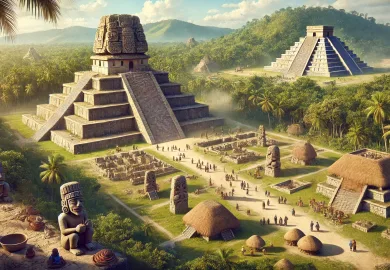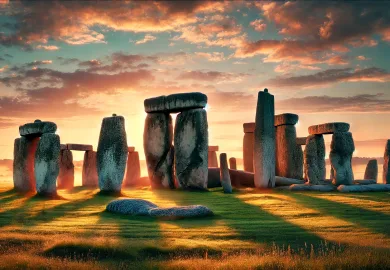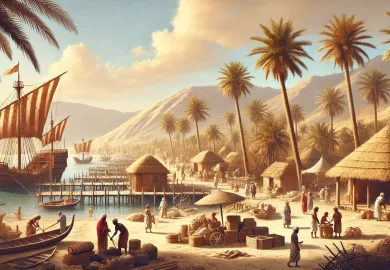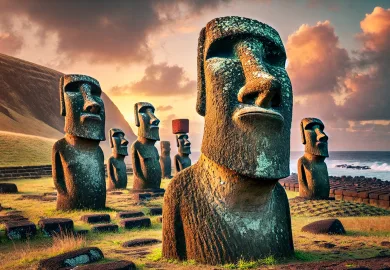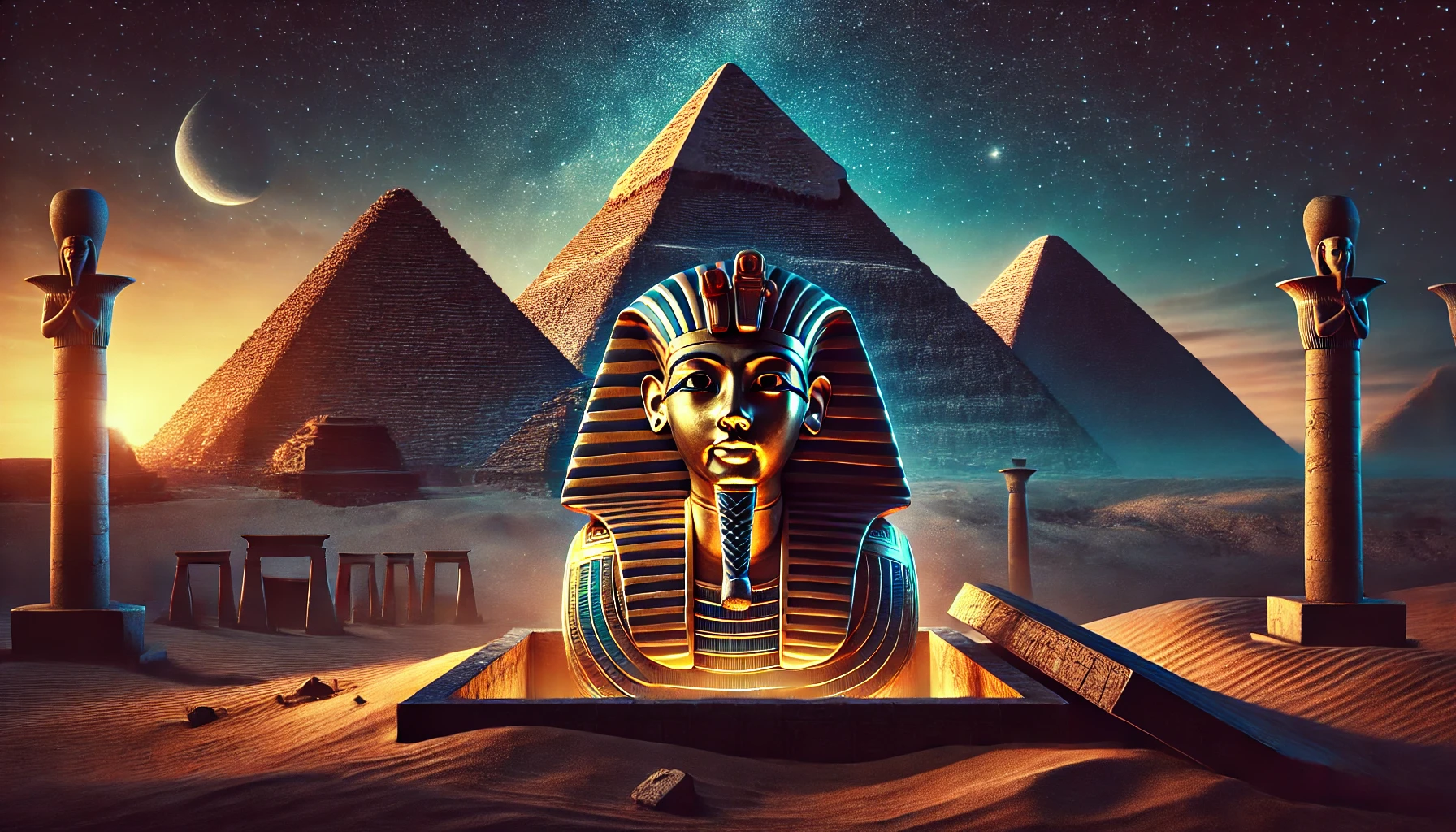
Disclaimer: This content was generated using AI. While I strive for accuracy, I encourage readers to verify important information. I use AI-generated content to increase efficiencies and to provide certain insights, but it may not reflect human expertise or opinions.
Tutankhamun, also known as the Boy King, remains one of ancient Egypt’s most fascinating and enigmatic figures. His tomb, discovered nearly intact in 1922, captured the world’s imagination, sparking questions about his life, death, and burial practices. While King Tutankhamun is often associated with the Valley of the Kings, the mystery of his pyramids—structures symbolic of the pharaohs’ eternal power—raises intriguing questions. How does Tutankhamun fit into Egypt’s pyramid-building legacy? This article explores the legacy of Tutankhamun and delves into the pyramids linked to his reign.
The Boy King and His Short Reign
Tutankhamun ascended to the throne at a young age, around eight or nine years old, during a tumultuous period in Egypt’s history. His reign marked the end of the controversial monotheistic religion established by his predecessor, Akhenaten, and the restoration of traditional Egyptian polytheism. Despite his young age, Tutankhamun’s reign played a pivotal role in stabilizing Egypt after years of religious upheaval.
The boy king ruled for only about ten years, dying at the age of 19. His death remains one of the greatest mysteries of the ancient world, with scholars debating whether he died from an accident, illness, or assassination. However, it is his burial and tomb that have cemented his place in history. The discovery of Tutankhamun’s tomb, filled with treasures and artifacts, gave the world a glimpse into the burial practices of ancient Egyptian royalty.
Why No Pyramid for King Tut?
Unlike the great pharaohs before him, such as Khufu, Khafre, and Menkaure, who were buried in monumental pyramids on the Giza Plateau, Tutankhamun’s tomb was located in the Valley of the Kings, far from the towering pyramids. Why didn’t King Tutankhamun have a pyramid built in his honor? Several factors come into play.
One reason could be the time constraints. Tutankhamun’s sudden death left little time to prepare a grand tomb or pyramid. Pyramids often took decades to construct, and given his unexpected death at such a young age, his advisors may have opted for a quicker, more accessible burial site in the Valley of the Kings. Additionally, during his reign, pyramid construction had fallen out of favor, with rock-cut tombs becoming the preferred burial option for Egyptian royalty.
The Symbolism of Egypt’s Pyramids
To understand the absence of a pyramid for Tutankhamun, it’s essential to explore the symbolism behind pyramids in ancient Egypt. Pyramids were more than just monumental tombs; they were symbols of the pharaohs’ divine power and their connection to the gods. The pyramid’s shape, with its wide base and pointed apex, represented the rays of the sun and the pharaoh’s journey to the afterlife.
The tradition of building pyramids began during Egypt’s Old Kingdom, with the Step Pyramid of Djoser being the earliest example. Over time, these structures evolved into the smooth-sided pyramids we see today. The Great Pyramid of Giza, built for Pharaoh Khufu, is the most iconic example of this architectural achievement.
By the time of Tutankhamun’s reign in the New Kingdom, the use of pyramids as tombs had declined. Instead, the focus shifted to underground burial chambers carved into the cliffs of the Valley of the Kings. These tombs, though less visually imposing, offered greater security against tomb robbers, a constant threat to the preservation of the royal dead.
Did Tutankhamun Have a Secret Pyramid?
While it is widely accepted that Tutankhamun was buried in a rock-cut tomb, some theorists believe there may be a hidden pyramid associated with the young pharaoh. This theory stems from the fact that Tutankhamun’s tomb was unusually small for a king of his stature. Could his original tomb have been elsewhere, perhaps in a forgotten pyramid?
Recent archaeological discoveries and advanced scanning technologies have reignited the debate. Some researchers have proposed that a previously undiscovered pyramid, perhaps unfinished or hidden beneath the sands of Egypt, could be linked to Tutankhamun’s reign. Although no concrete evidence has emerged to support this claim, the idea of a mysterious pyramid continues to intrigue Egyptologists and adventurers alike.
The Legacy of Tutankhamun’s Tomb
While King Tutankhamun did not have a pyramid in the traditional sense, his tomb, known as KV62, remains one of the most significant discoveries in Egyptology. Howard Carter’s discovery of the tomb in 1922 unearthed a treasure trove of artifacts, including the iconic golden mask of Tutankhamun. This tomb, hidden for over 3,000 years, provided a rare, nearly undisturbed glimpse into the life and death of an ancient Egyptian king.
The tomb’s design, though modest compared to the grand pyramids of the Old Kingdom, is a testament to the craftsmanship and artistry of the ancient Egyptians. The burial chamber, adorned with vibrant wall paintings depicting Tutankhamun’s journey to the afterlife, showcases the intricate beliefs and rituals surrounding death and rebirth in ancient Egypt.
Tutankhamun’s Treasures and the Curse of the Pharaohs
One of the most captivating aspects of Tutankhamun’s tomb is the wealth of treasures found within. From golden statues to intricately carved jewelry, these artifacts reflected the opulence of ancient Egyptian royalty. However, the discovery also gave rise to the infamous Curse of the Pharaohs, a superstition suggesting that those who disturb a pharaoh’s tomb would suffer from misfortune or death.
While many of the individuals involved in the tomb’s excavation did meet untimely deaths, historians attribute these events to coincidence rather than a mystical curse. Nevertheless, the idea of a curse only added to the intrigue surrounding Tutankhamun and his burial.
The Enduring Mystique of King Tutankhamun
Nearly a century after the discovery of his tomb, Tutankhamun’s legacy continues to captivate scholars, historians, and the general public. His reign may have been brief, and his burial devoid of the grandeur of the pyramids, but his story endures. The treasures from his tomb are now housed in the Egyptian Museum in Cairo, where they remain a testament to the grandeur of ancient Egypt.
The mysteries surrounding his life, death, and burial have yet to be fully unraveled. Despite the lack of a pyramid, Tutankhamun’s tomb remains one of the greatest archaeological discoveries of all time, shedding light on the practices and beliefs of an ancient civilization.
Egypt’s Pyramid Legacy Beyond Tutankhamun
While Tutankhamun’s tomb stands as a testament to the grandeur of Egypt’s New Kingdom, the pyramids of earlier dynasties remain some of the most iconic and mysterious structures in the world. The construction of pyramids in Egypt represented not only the power of the pharaohs but also their connection to the divine. Though Tutankhamun did not have a pyramid of his own, the structures built by his predecessors continue to define the landscape of ancient Egypt.
From the towering Great Pyramid of Giza to the smaller, lesser-known pyramids scattered throughout Egypt, these monumental tombs serve as a reminder of the enduring legacy of the pharaohs. The mysteries of ancient Egypt, including the question of whether Tutankhamun was linked to any undiscovered pyramids, continue to inspire exploration and discovery.
In conclusion, while King Tutankhamun may not have had a traditional pyramid, the mysteries surrounding his tomb and burial practices ensure that his legacy remains intertwined with Egypt’s great monuments. His tomb, filled with treasures and guarded by centuries of history, stands as a symbol of a civilization that continues to captivate the world.


